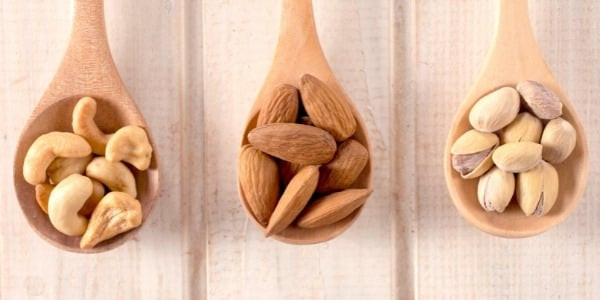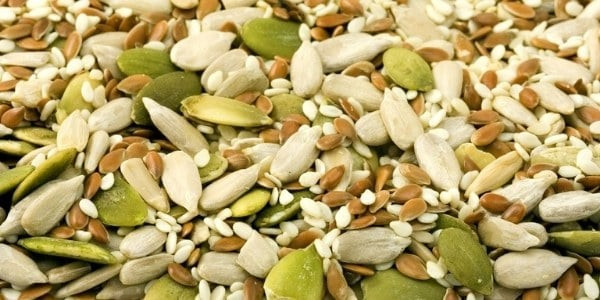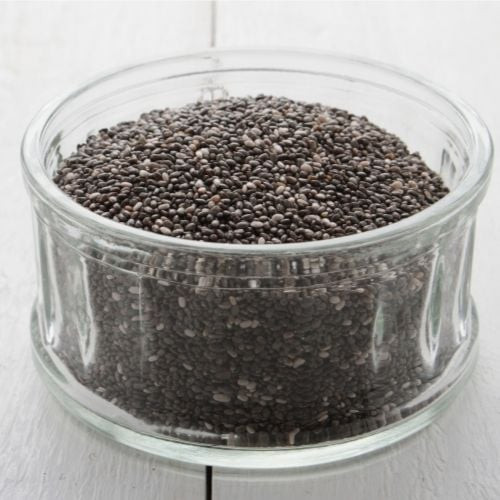It’s natural to want to share our favorite snacks with our feline companions, and if you’re a nut lover, you might wonder, “Can Cats Eat Nuts?” The simple answer is complicated. While some nuts are technically not toxic to cats, nuts are generally not recommended for feline consumption. This is due to a variety of health risks that outweigh any potential benefits.
Let’s delve into the world of nuts and cats to understand why they aren’t the purrfect snack and what you need to be aware of as a responsible cat owner.
Nutritional Benefits of Nuts for Cats? Not Really
While nuts are often praised for their nutritional value for humans, offering protein, healthy fats, and various vitamins and minerals, these benefits are minimal and often irrelevant for cats. Cats are obligate carnivores, meaning their primary nutritional needs are met through meat-based diets. Their digestive systems are designed to process animal protein and fats, not plant-based sources like nuts.
Here’s a quick breakdown of why the “goodness” of nuts doesn’t translate well to felines:
- Protein Source: While nuts do contain protein, it’s not the ideal type for cats. Cats thrive on animal protein, rich in essential amino acids like taurine, which is crucial for heart health, vision, and digestion and is primarily found in meat.
- Amino Acids: Nuts contain some amino acids, but the balance and availability might not be optimal for a cat’s specific needs.
- Fiber: While fiber can be beneficial for digestive health in some species, cats don’t require a high-fiber diet. In fact, too much fiber can lead to digestive upset in cats.
- Vitamins and Minerals: Cats get their required vitamins and minerals from a balanced cat food diet. Relying on nuts for these nutrients is unnecessary and risky.
- Healthy Fats: Nuts are high in fat, but the type of fat and the concentrated amount can be problematic for cats, as we’ll discuss in the risks section.
Essentially, while nuts aren’t inherently poisonous in small quantities (except for specific types), they offer little to no nutritional advantage for cats and come with significant potential dangers.
How Nuts Can Be Harmful to Cats: Potential Risks
The risks associated with feeding nuts to cats are numerous and can range from mild digestive issues to severe health emergencies. Here’s a comprehensive look at the potential harm:
-
High Calorie and Fat Content: Risk of Pancreatitis: Nuts are incredibly calorie-dense and high in fat. Even a small amount of nuts can significantly increase a cat’s daily calorie intake, leading to weight gain and obesity over time. More acutely, the high fat content can trigger pancreatitis, a serious and painful inflammation of the pancreas. Pancreatitis in cats can cause vomiting, diarrhea, abdominal pain, lethargy, and loss of appetite, requiring veterinary intervention.
-
Toxicity of Certain Nuts: Some nuts are explicitly toxic to cats, even in small amounts. We’ll detail these toxic nuts later, but it’s crucial to understand that macadamia nuts and walnuts, among others, can cause neurological issues and other severe reactions in felines.
-
Choking Hazard and Intestinal Blockages: Nuts, especially whole nuts, are a significant choking hazard for cats. Their size and shape can easily lodge in a cat’s throat. Furthermore, even if swallowed, nuts are not easily digestible. They can cause intestinal blockages, particularly in the esophagus, stomach, or intestines, requiring surgery to resolve.
-
Digestive Upset: Even non-toxic nuts can cause gastrointestinal distress in cats. Their digestive systems are not well-equipped to handle the complex proteins and high fiber content in nuts. This can lead to vomiting, diarrhea, stomach pain, and general discomfort.
-
Salt and Seasonings: Nuts intended for human consumption are often roasted and heavily seasoned with salt, spices, and artificial flavorings. Excessive salt intake is harmful to cats and can lead to sodium ion poisoning. Onions and garlic, common seasonings on nuts, are toxic to cats and can cause anemia.
-
Shells and Coatings: Nut shells are indigestible and can cause trauma to the gastrointestinal lining if ingested. Coatings like chocolate, sugar, or artificial sweeteners (especially xylitol, which is lethal to cats) on some nuts are also highly dangerous.
 nuts that are safe and unsafe for pets
nuts that are safe and unsafe for pets
“Safe” Nuts for Cats? Proceed with Extreme Caution
While some lists might suggest “safe” nuts for pets, including cats, it’s vital to interpret this with extreme caution. Even nuts considered “safe” are not recommended as a regular part of a cat’s diet and should only be considered, at most, as a very occasional, tiny treat.
If you absolutely must give your cat a nut, the “safer” options (in very small, plain, and properly prepared forms) are:
- Peanuts (Plain, Shelled, Unsalted): Peanuts are technically legumes, but often grouped with nuts. If you offer a peanut, it must be plain, unsalted, and completely shelled. Even then, only offer a tiny piece.
- Hazelnuts (Plain, Shelled, Unsalted): Similar to peanuts, a very small piece of plain, shelled hazelnut might be tolerated by some cats, but it’s still not advisable.
- Roasted Cashews (Plain, Shelled, Unsalted): Roasted cashews are listed as safer than raw, but again, only a tiny, plain, unsalted, shelled piece. Never give raw cashews to cats.
- Pine Nuts (Plain, Shelled, Unsalted, Tiny Amounts): Pine nuts are very high in fat, even compared to other nuts. If offered at all, it must be an incredibly small piece, plain, shelled, and unsalted, and very infrequent.
Key Warnings for Even “Safe” Nuts:
- Moderation is Crucial: Even these “safer” nuts should be given in minuscule quantities, extremely infrequently. Think of it as less than a crumb, not a whole nut.
- Preparation is Key: Nuts must be plain, unsalted, unshelled, and ideally, plain roasted (except for raw cashews, which should be avoided entirely).
- Choking Hazard: Always supervise your cat closely when they are near nuts, even small pieces, due to the choking risk.
- Digestive Upset: Be prepared for potential digestive upset even with “safe” nuts, especially if your cat has a sensitive stomach.
Peanut Butter and Cats: Watch Out for Xylitol!
Peanut butter is often mentioned in discussions about nuts and pets. Plain, unsalted peanut butter made with only peanuts can be given to cats in very tiny amounts as an occasional treat or to help administer medication. However, the most critical danger with peanut butter is xylitol.
Xylitol is an artificial sweetener commonly found in sugar-free peanut butter and other human foods. Xylitol is extremely toxic to both dogs and cats. Even a small amount of xylitol can cause a rapid and dangerous drop in blood sugar (hypoglycemia), liver failure, seizures, and even death in cats.
Always check the ingredient list of peanut butter meticulously before offering it to your cat. Ensure it contains only peanuts and no added salt, sugar, or, most importantly, xylitol. Opt for natural peanut butter and offer only a smear, if at all.
Nuts to Absolutely Avoid for Cats: Toxic and Highly Risky
Certain nuts are definitively toxic to cats and should never be given to them under any circumstances. These nuts pose serious health risks and can cause severe symptoms.
-
Macadamia Nuts: Macadamia nuts are highly toxic to cats (and dogs). Even a small ingestion can lead to macadamia nut toxicity, causing symptoms like weakness, inability to walk, vomiting, tremors, and hyperthermia (fever). Symptoms can appear within 12 hours of ingestion.
-
Black Walnuts: Black walnuts are also toxic to cats and dogs. They can cause vomiting and neurological symptoms. While English walnuts are considered less toxic, they are still not recommended due to their high fat content and potential for mold.
-
Old and Moldy Walnuts (All Types): Moldy walnuts, regardless of the type, are dangerous due to tremorgenic mycotoxins produced by molds. These toxins can cause tremors and seizures in cats and dogs. Never give your cat any old or moldy nuts.
-
Raw Cashews: Raw cashews contain compounds that make them harder to digest than roasted cashews and can cause stomach upset. They are also considered potentially toxic to cats, although the exact toxic mechanism is unknown. Avoid raw cashews entirely.
-
Pistachios: Pistachios are high in fat, increasing the risk of pancreatitis and digestive upset. They are also a choking hazard due to their size and shells. Pistachios can also harbor molds that are harmful to the liver. Furthermore, pistachios are often seasoned with salt, onion, and garlic, all of which are problematic or toxic for cats.
-
Hickory Nuts: Hickory nuts are large and hard, making them a significant choking hazard and risk for intestinal blockages, especially in cats and small dogs. Moldy hickory nuts can also contain tremorgenic mycotoxins.
-
Pecans: While not directly toxic, pecans are prone to mold growth, which can produce mycotoxins leading to seizures and nerve damage. They are also high in fat and can cause gastrointestinal distress and blockages.
-
Almonds: Almonds are not explicitly toxic but are not recommended for cats. They are hard to digest, pose a choking hazard (especially for small breeds), and can cause gastrointestinal upset and pancreatitis due to their high-fat content. Salted almonds are even more problematic. Almonds are also susceptible to mold.
-
Brazil Nuts: Brazil nuts are not typically considered toxic, but they are very high in fat, making them difficult to digest and increasing the risk of pancreatitis, especially in cats prone to hyperlipidemia (high blood fat). In rare cases, excessive Brazil nut consumption has been linked to selenium poisoning in humans; while less likely in cats from a single nut, it’s another reason to avoid them.
 macadamia nuts toxic to pets
macadamia nuts toxic to pets
Symptoms of Nut Toxicity in Cats: Seek Immediate Veterinary Care
If you suspect your cat has eaten nuts, especially toxic nuts, or if they are showing any of the following symptoms, contact your veterinarian immediately or seek emergency veterinary care. Do not wait for symptoms to worsen.
Common symptoms of nut toxicity or general nut-related illness in cats include:
- Vomiting
- Diarrhea
- Lack of bowel movements for a day or two
- Bloating
- Fever
- Rapid heart rate
- Abdominal pain (indicated by groaning, rapid breathing, or reluctance to be touched)
- Loss of appetite
- Lethargy or weakness
- Tremors or muscle twitching
- Difficulty walking or weakness in the legs
- Seizures
- Bloody stool (may appear black and tarry)
- Orange-colored urine
What About Seeds for Cats? Similar Considerations
While this article primarily focuses on nuts, seeds often come up in the same context. Generally, the same principles apply to seeds as to nuts for cats: moderation, caution, and awareness of risks.
Like nuts, seeds are high in fat and calories, and some seeds can be choking hazards. Seasoned or coated seeds are also problematic.
“Safe” Seeds for Cats (Limited and Prepared)
Some seeds are considered “safer” than others for cats, but again, these are not recommended as regular treats and should be offered, if at all, in very small, plain, and properly prepared forms.
- Sunflower Seeds (Shelled, Unsalted): Plain, shelled, unsalted sunflower seeds can be given in very small amounts, but they are high in fat.
- Flax Seeds (Ground, Cold-Pressed): Ground flax seeds can be added to a cat’s food in very small amounts as a source of omega-3 fatty acids, but the benefits for cats are questionable, and it’s better to get omega-3s from fish oil sources.
- Chia Seeds (Soaked): Chia seeds should be soaked in water to form a gel before being given to cats to prevent expansion in the stomach. Offer only a tiny amount of chia gel.
- Pumpkin Seeds (Unsalted, Ideally Ground): Unsalted pumpkin seeds, ideally ground, can be given sparingly. They are also high in fat.
 seeds that pets can have
seeds that pets can have
Toxic Seeds for Cats
Generally, fruit seeds (except cucumber seeds in very small amounts) should be considered toxic or hazardous to cats due to potential cyanide content, choking risks, or intestinal blockage risks.
Raisins, often found in trail mix with nuts and seeds, are highly toxic to cats and dogs and should be strictly avoided.
 chia seeds in a dish
chia seeds in a dish
Conclusion: Nuts and Cats – Best to Err on the Side of Caution
While your cat might be curious about the nuts you’re snacking on, it’s best to resist the urge to share. The risks associated with feeding nuts to cats far outweigh any potential benefits. Cats are not designed to digest nuts, and many nuts are actively harmful or toxic to them.
For your cat’s health and safety, avoid giving them nuts. Stick to cat-specific treats that are formulated to meet their nutritional needs and are safe for their digestive systems. If you believe your cat has ingested nuts, monitor them closely for any signs of illness and contact your veterinarian immediately if you have any concerns. When it comes to nuts and cats, it’s always best to err on the side of caution and keep these human snacks to yourself.

